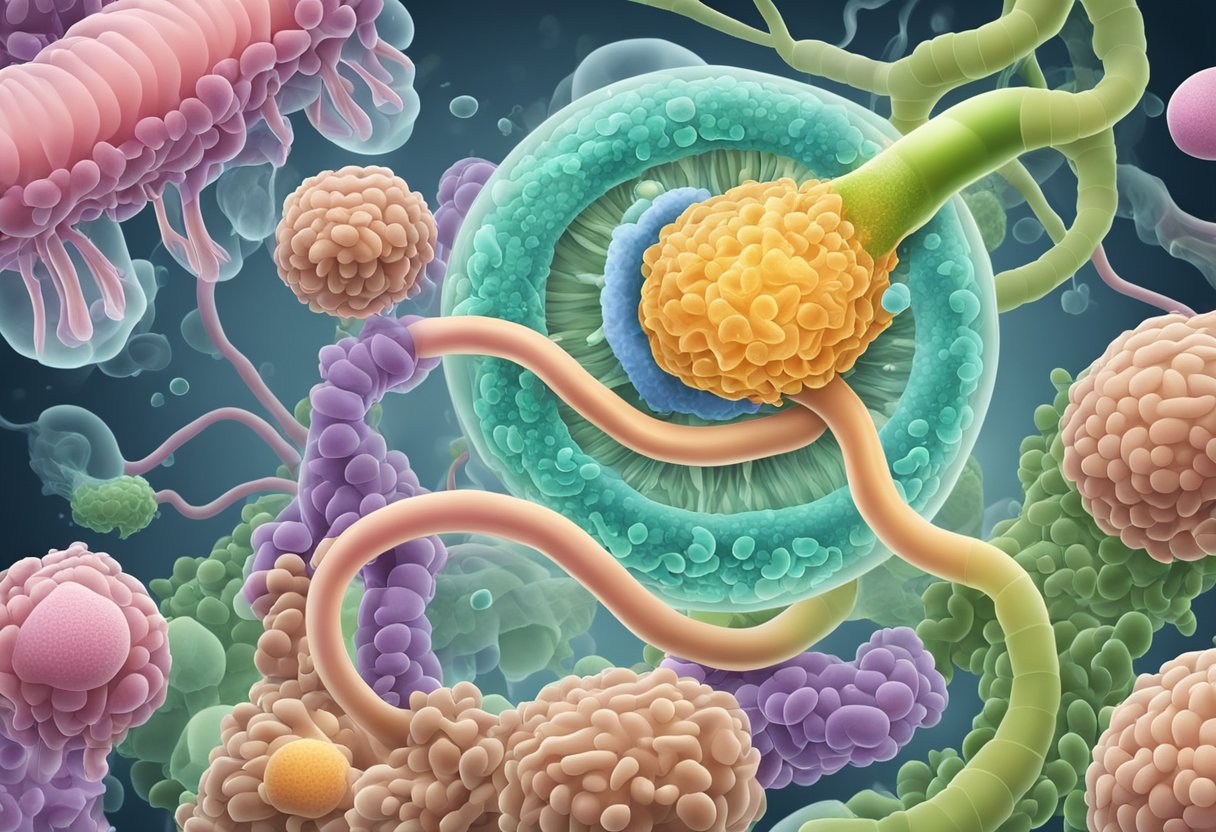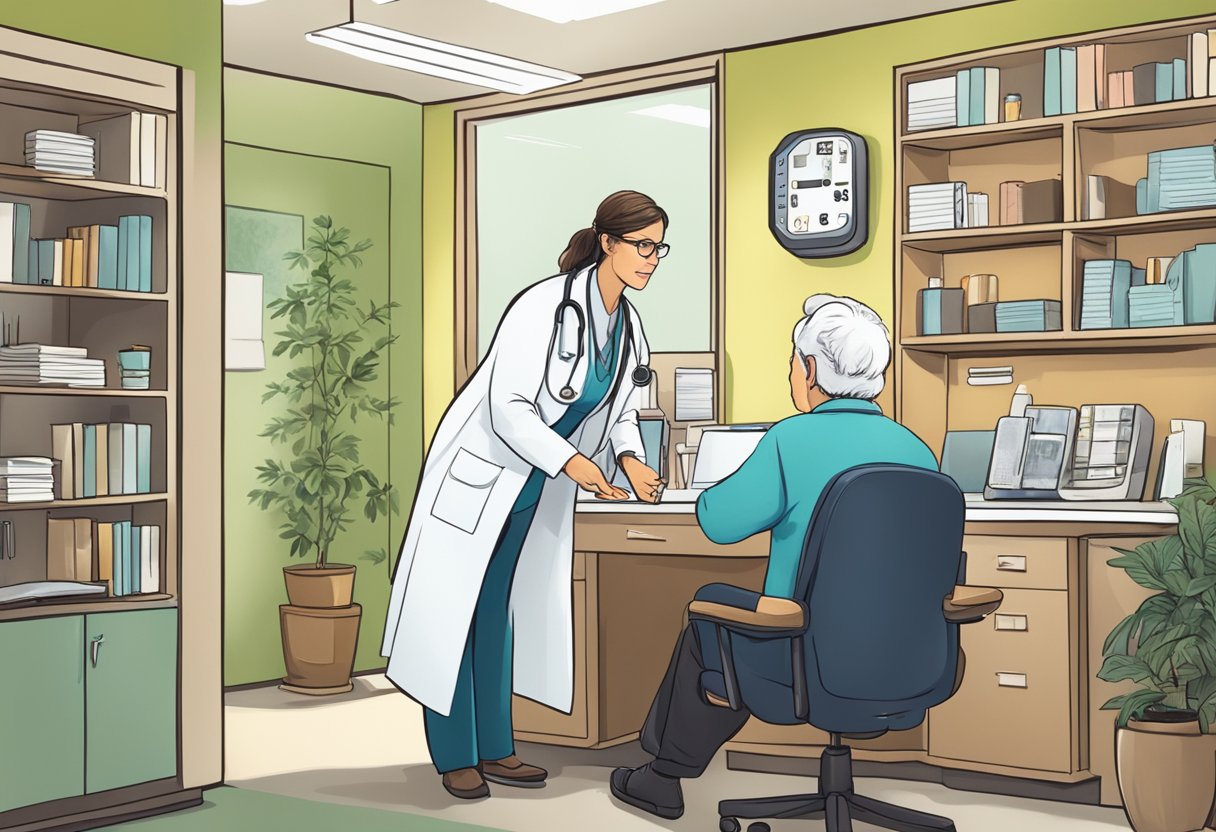Let’s face it, everyone farts. And sometimes, those farts can be downright stinky. But have you ever wondered why some farts smell worse than others? The truth is, there are a number of factors that can contribute to the odor of your flatulence.

One of the biggest culprits of smelly farts is the food you eat. Certain foods, such as beans, broccoli, and cabbage, contain high amounts of sulfur, which can cause your farts to smell like rotten eggs. Additionally, foods that are high in fat or sugar can also lead to stinky farts. So, if you’re looking to avoid smelly farts, you might want to consider cutting back on these types of foods.
But it’s not just what you eat that can affect the smell of your farts. Your overall digestive health can also play a role. If your body has trouble breaking down certain foods, they can ferment in your gut and produce foul-smelling gases. Certain medical conditions, such as lactose intolerance and celiac disease, can also lead to smelly farts. So, if you’re experiencing particularly stinky flatulence on a regular basis, it might be worth talking to your doctor to rule out any underlying health issues.
The Science of Farts

Farting, passing gas, breaking wind, cutting the cheese – whatever you call it, it’s a natural bodily function that everyone experiences. But have you ever wondered why farts smell? Let’s dive into the science of farts and find out.
The average person farts about 14 times a day, expelling a mixture of gases including nitrogen, oxygen, carbon dioxide, hydrogen, and methane. The exact composition of a fart varies depending on a number of factors, such as diet, gut bacteria, and digestion speed.
One of the main culprits behind the stinky odor of farts is hydrogen sulfide, a gas that smells like rotten eggs. This gas is produced when the body breaks down sulfur-containing proteins found in certain foods, such as eggs, meat, and dairy. The more sulfur-containing foods you eat, the more likely you are to have farts that smell like rotten eggs.
Methane is another gas commonly found in farts, and it’s responsible for the flammable nature of some farts. Methane is produced when bacteria in the gut break down undigested carbohydrates, such as fiber. The more fiber you eat, the more methane you’re likely to produce.
Carbon dioxide is also present in farts, and it’s a byproduct of the digestive process. When food is broken down in the stomach and intestines, carbon dioxide is released and can make its way out of the body through the anus.
In summary, farts are a natural bodily function that everyone experiences. The odor of a fart is determined by a variety of factors, including the types of foods you eat and the bacteria in your gut. While farts may not always be pleasant, they’re nothing to be ashamed of – in fact, they’re a sign that your digestive system is working properly.
Bacteria and Digestion

Role of Gut Bacteria
Believe it or not, the bacteria in your gut play a significant role in the production of gas. When you eat food, your gut bacteria break it down and ferment it. This process produces gases like hydrogen, carbon dioxide, and methane, which can lead to flatulence.
Some gut bacteria are more efficient at breaking down certain types of food than others. For example, some bacteria are better at breaking down fiber, which can result in more gas production. Other bacteria may produce more sulfur-containing gases, which can contribute to a particularly pungent odor.
Digestive System and Gas Production
The digestive system is responsible for moving food through the body and extracting nutrients. Along the way, gas is produced as a byproduct of digestion.
The small intestine is where most of the nutrients are absorbed, but it’s also where some gas is produced. As food moves into the colon, it is broken down further by gut bacteria, which can produce even more gas.
Gas can be released through belching or flatulence. Belching usually occurs when air is swallowed while eating or drinking. Flatulence, on the other hand, is the result of gas produced during digestion.
In conclusion, gut bacteria and the digestive system play a significant role in the production of gas and the smell of farts. While it may be embarrassing or unpleasant, it’s a completely natural process.
Foods That Make Farts Smell

Farts are a natural part of the digestive process, but sometimes they can be downright embarrassing. If you’ve ever wondered why your farts smell so bad, the answer might be in the foods you eat. Here are some foods that can make your farts smell worse than usual.
Sulfur-Rich Foods
Foods that are high in sulfur can cause your farts to smell like rotten eggs. This is because sulfur is a key component of the gas that makes up farts. Some sulfur-rich foods to watch out for include:
- Vegetables such as broccoli, cabbage, and cauliflower
- Eggs
- Beans
- Garlic and onions
- Meat and meats products
While these foods are all healthy and nutritious, they can also cause some pretty stinky farts. If you’re going to be around other people, you may want to avoid eating these foods.
High-Fiber Foods
Fiber is an essential nutrient that helps keep your digestive system running smoothly. However, some high-fiber foods can also cause you to produce more gas. This is because fiber takes longer to digest, which gives the bacteria in your gut more time to produce gas. Some high-fiber foods to watch out for include:
- Nuts and seeds
- Whole grains
- Cruciferous vegetables such as broccoli, cabbage, and cauliflower
- Beans and lentils
While these foods are all great sources of fiber, they can also cause some pretty smelly farts. If you’re going to be in close quarters with other people, you may want to avoid eating these foods.
Food Intolerances
If you have a food intolerance, your body has trouble digesting certain foods. This can lead to a variety of symptoms, including bloating, gas, and diarrhea. Some common food intolerances include:
- Lactose intolerance: This is a condition in which the body can’t digest lactose, the sugar found in milk and dairy products.
- Gluten intolerance or sensitivity: This is a condition in which the body has trouble digesting gluten, a protein found in wheat, barley, and rye.
- FODMAP intolerance: FODMAPs are a type of carbohydrate found in many foods, including fruits, vegetables, and grains. Some people have trouble digesting FODMAPs, which can lead to bloating, gas, and other digestive symptoms.
If you have a food intolerance, you may find that certain foods make your farts smell worse than usual. If you suspect that you have a food intolerance, talk to your doctor or a registered dietitian to get a proper diagnosis.
Health Conditions and Smelly Gas

When it comes to smelly gas, certain health conditions can be a contributing factor. Here are some of the most common health conditions that can cause smelly gas:
Digestive Disorders
Digestive disorders such as irritable bowel syndrome (IBS), constipation, diarrhea, bloating, and abdominal pain can all lead to smelly gas. These conditions can cause changes in the stool that can lead to an increase in gas production. In addition, IBS can cause sensitivity to certain foods that can lead to excessive gas production.
Infections and Illnesses
Infections and illnesses such as celiac disease, bacterial infections, and inflammatory bowel disease can all cause smelly gas. These conditions can cause inflammation in the digestive tract, leading to an increase in gas production. In addition, infections and illnesses can cause other symptoms such as fever, vomiting, and weight loss.
It’s important to note that smelly gas is not always a sign of a serious health condition. In fact, it’s a normal bodily function that everyone experiences. However, if you are experiencing excessive gas production or other symptoms, it’s important to speak with a gastroenterologist to rule out any underlying health conditions.
In summary, smelly gas can be caused by a variety of health conditions such as digestive disorders, infections, and illnesses. If you are experiencing excessive gas production or other symptoms, it’s important to speak with a healthcare professional to determine the underlying cause.
Lifestyle Factors and Fart Smell

Let’s face it – nobody wants to be known as the person who has the stinkiest farts. While it’s true that some people naturally produce smellier gas than others, there are certain lifestyle factors that can contribute to the unpleasant odor. Here are some things to keep in mind:
Diet
As the saying goes, “you are what you eat.” And when it comes to fart smell, this couldn’t be more true. Certain foods like broccoli, beans, and cabbage are notorious for causing gas and producing a less-than-pleasant odor. On the other hand, foods like peppermint and ginger can actually help to reduce gas and improve digestion.
Passing Gas
While it may be tempting to hold in a fart, doing so can actually lead to discomfort and even pain. When gas builds up in the intestines, it can cause bloating and cramping. So if you feel the need to pass gas, go ahead and do it – just try to do so in a polite and discreet manner.
Medications and Antibiotics
Certain medications and antibiotics can alter the balance of bacteria in the gut, leading to changes in fart smell. If you’ve recently started a new medication or antibiotic and have noticed a change in your fart odor, talk to your doctor.
Stress
Believe it or not, stress can actually affect fart smell. When you’re stressed, your body releases a hormone called cortisol, which can slow down digestion and lead to more gas production. So if you’re feeling stressed, try to take a few deep breaths and relax.
Carbonated Drinks, Beer, and Alcohol
Carbonated drinks, beer, and alcohol can all contribute to fart smell. This is because they can cause gas to build up in the intestines. If you’re looking to reduce fart smell, try cutting back on these beverages.
Lifestyle Changes, Fitness, and Wellness
Making certain lifestyle changes can also help to reduce fart smell. For example, getting regular exercise can improve digestion and reduce gas production. Eating a healthy diet that’s rich in fiber can also help to keep things moving smoothly in the gut.
Over-the-Counter Medications
Certain over-the-counter medications like antacids and laxatives can also contribute to fart smell. If you’re taking any of these medications and have noticed a change in your fart odor, talk to your doctor about alternative options.
In summary, there are many lifestyle factors that can contribute to fart smell. By making certain changes to your diet, exercise routine, and medication regimen, you can help to reduce fart odor and improve your overall digestive health.
When to See a Doctor

If someone’s farts are consistently smelly, it’s time to see a doctor. While it’s normal for farts to have a certain odor, if they are especially pungent, it could be a sign of a more serious issue.
A healthcare provider or gastroenterologist can help determine the root cause of the smelly farts. They may ask about the person’s diet and lifestyle habits, as well as perform tests to rule out any underlying conditions.
If the person is experiencing other symptoms such as fatigue or changes in bowel habits, it’s especially important to seek medical attention. These could be signs of a more serious issue such as polyps, tumors, or bowel obstruction.
While it may be a sensitive topic to bring up, it’s important to remember that doctors have heard it all before. They are there to help and provide treatment options to improve the person’s overall health and well-being. So, don’t be afraid to let it all out and seek medical advice.
Conclusion

In conclusion, farting is a natural bodily function that everyone experiences. While it may be embarrassing or unpleasant, it is a sign that your digestive system is working properly. The smell of your farts can vary depending on a variety of factors, including the foods you eat, your overall health, and the composition of your gut bacteria.
If you’re concerned about the smell of your farts, there are a few things you can do to reduce the odor. Eating a balanced diet that is high in fiber can help regulate your digestive system and reduce gas production. Avoiding foods that are known to cause excess gas, such as beans and cruciferous vegetables, can also help.
It’s also important to stay hydrated and get regular exercise to keep your digestive system healthy. If you’re experiencing persistent digestive issues or excessive gas, it’s a good idea to talk to your doctor to rule out any underlying health conditions.
Remember, farting is a natural and normal part of life. Don’t be ashamed or embarrassed by it – embrace your farts and let them fly!